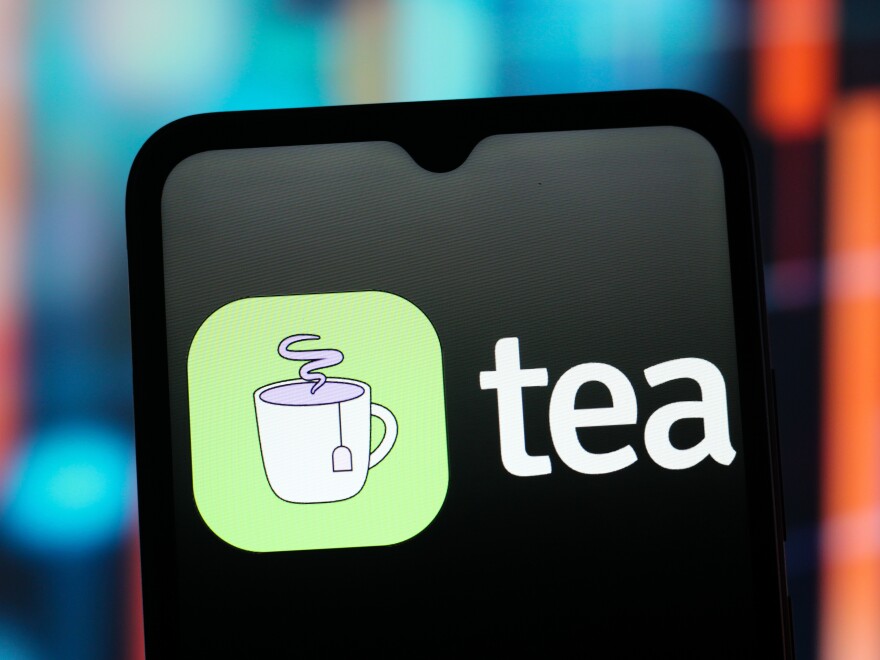With features including reverse picture searches, background and criminal record checks, and anonymous communication about males posted on the app, The Tea app bills itself as “the safest place to spill tea” about possible online matches.
However, the disclosure last month that personal information had been compromised and made public online exposed the anonymous, biased charges made against the men in their dating pools and jeopardized the safety of the women using the well-known app. It also brought attention to the shortcomings of these “whisper networks,” which became well-known during the Me Too movement.
A significant data breach at Tea exposed users’ driver’s licenses, private chats, pictures, and other private data.
The first breach was found by the Tea team on the evening of July 25. Users of the infamous message board 4chan obtained critical information, including government IDs, which had previously been utilized by the app as a verification mechanism and published online, as 404 Media first reported.
“As part of our ongoing investigation into the cybersecurity incident involving the Tea App, we learned that some direct messages (DMs) were accessed as part of the initial incident,” a spokesperson for the business told NPR.
“We have removed the impacted system from service out of caution. We have not yet discovered any proof of access to other areas of our surroundings.
Only users who registered before February 2024 were impacted, according to the business.
Online trolls also asserted that they had created a map of the locations of Tea subscribers using the metadata found in the images.
Due to the breach, the company, which claims to have over 6.2 million female members, is facing two class action lawsuits filed in California.
Whisper networks for women’s safety
Attempts to harness the power of gossip and use it to make dating safer are not unique to Tea.
There are numerous regional Facebook groups devoted to assisting women in determining whether they are dating the same man and evaluating the personalities of the men featured on the pages.
Industry-specific Google Docs collected anonymous complaints about men who were accused of acting improperly with their coworkers during the height of the Me Too movement.
According to experts, networks of women discreetly exchanging information among themselves at work or on college campuses can expose abusers without putting accusers at risk of reprisals from the victims.
“The term whisper network kind of came into play in the general public consciousness in 2017 when we were hearing about the trial of Harvey Weinstein and Me Too,” said Carrie Ann Johnson, who is an assistant teaching professor at Iowa State University who teaches women’s and gender studies. However, she claimed that these unofficial networks of contact among women had been around for a very long time.
Johnson has written about the complexity of whisper networks and their potential significance for women in settings where sexual harassment may take place.
However, Johnson noted that these networks face the risk of losing some of the components that make in-person communications so successful when they transition to digital.
“When it moves to an app, I think we end up having more problems, largely due to the language of whisper networks, which is often a little bit coded,” Johnson stated.
“Even some of the nuances of what you would need in a whisper network just gets lost in translation,” she stated. “But also people constantly calibrate the trustworthiness of the information they’re hearing, but when it is moved online, you can’t hear anything behind the story.”
From gossip to “online mob behavior”
Furthermore, digital events can have serious real-world repercussions.
The anonymity of these sources has long been a topic of criticism since it might result in accusations of bad faith. When unsubstantiated claims, such as those made by tea users, reach a particular audience, they might draw crowds of people eager to publicly humiliate the person who is the subject of the accusation.
When discussing what are essentially types of gossip, any of these things have the potential to be harmful in and of itself. And we witness that type of online mob activity often,” said Emily Laidlaw, a cybersecurity law expert and associate professor at the University of Calgary.
Laidlaw has written about people’s right to privacy online and the dangers of public humiliation. Although whisper networks, such as the Tea app, typically have good intentions, she added that the widespread, unrestricted spread of important information may frequently turn toxic.
“I think that there’s a broader question really that’s about civility and about how we engage with each other,” she stated.
Additionally, harm can be done to both the accuser and the accused.
Social media users delighted in making fun of and threatening the safety of the ladies whose personal information was compromised during the Tea app incident.
One social media user said, “Use the database to create a male version of the app.” “Escalate this sh**.”
In the meantime, a number of cases have been launched by men who claim to have suffered as a result of being mentioned in these kinds of open online forums.
In one prominent instance, the creator of a public, anonymous Google Doc detailing men in the media sector who were accused of sexual misconduct settled for six figures when one of the men sued her for slander.
“People often go into these spaces and they start sharing information back and forth, and what might start out as something that might seem valuable becomes a way of just fueling harm,” Laidlaw stated.
“And it has such a tremendous impact in a way that it might not when you’re all sitting around in the pub having a conversation about this guy you just went out on a date with last week,” she continued.
Copyright 2025 NPR






